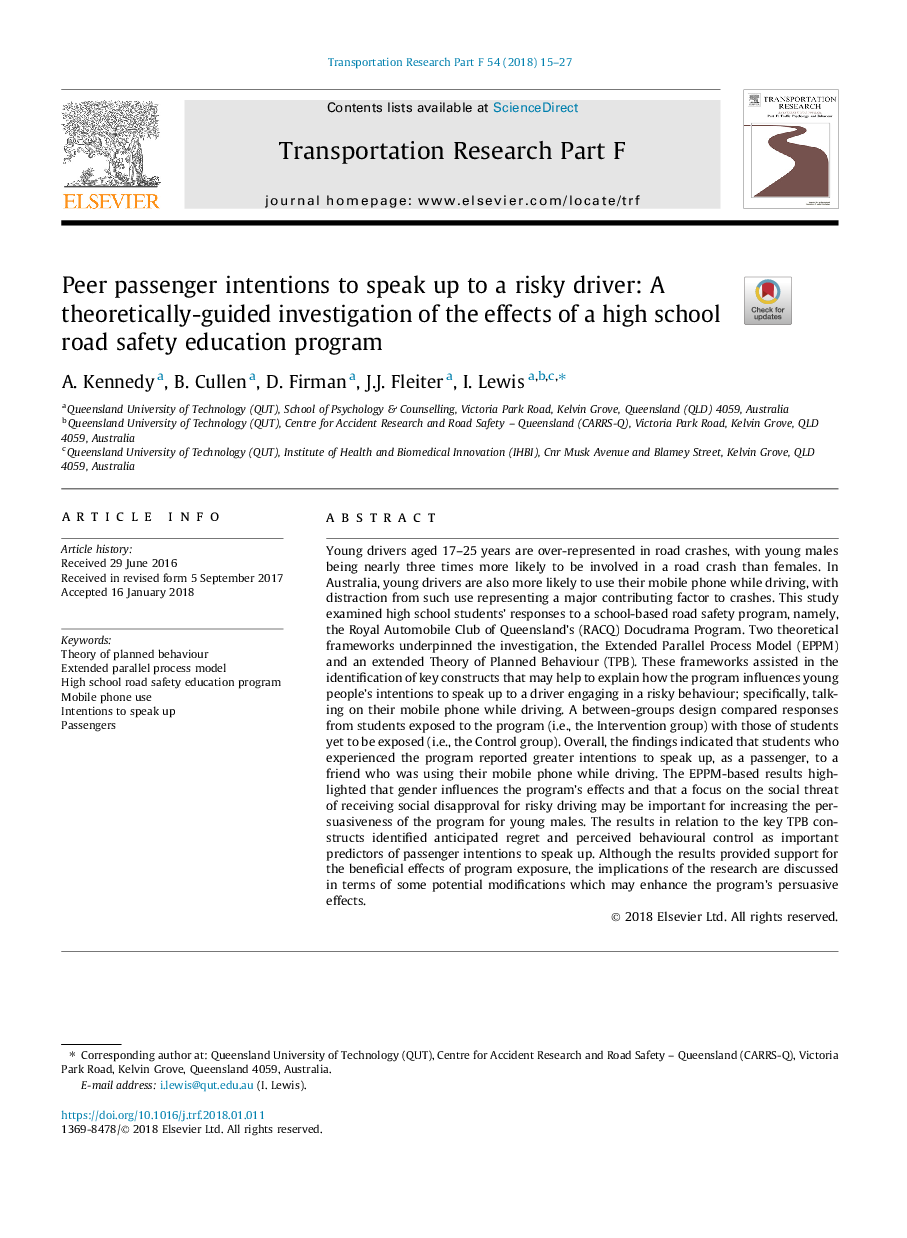ترجمه فارسی عنوان مقاله
نگرانی مسافر همکار برای صحبت کردن با یک راننده خطرناک: یک مطالعه ی نظری به اثبات برنامۀ آموزشی آموزش ایمنی در مسیر دبیرستان
عنوان انگلیسی
Peer passenger intentions to speak up to a risky driver: A theoretically-guided investigation of the effects of a high school road safety education program
| کد مقاله | سال انتشار | تعداد صفحات مقاله انگلیسی |
|---|---|---|
| 132310 | 2018 | 13 صفحه PDF |
منبع

Publisher : Elsevier - Science Direct (الزویر - ساینس دایرکت)
Journal : Transportation Research Part F: Traffic Psychology and Behaviour, Volume 54, April 2018, Pages 15-27
ترجمه کلمات کلیدی
نظریه رفتار برنامه ریزی شده، مدل فرایند موازی فرمت شده، برنامه تحصیلی ایمنی جاده دبیرستان، استفاده از تلفن همراه، اهداف سخن گفتن مسافران،
کلمات کلیدی انگلیسی
Theory of planned behaviour; Extended parallel process model; High school road safety education program; Mobile phone use; Intentions to speak up; Passengers;

